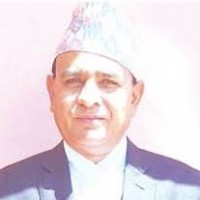Neoliberalism Threatens Workers’ Rights
Premal Kumar Khanal
A two-day Asia Pacific regional conference of the World Federation Of Trade Unions (WFTU) is kicking off in Kathmandu today with the slogan ‘Ensure the basic needs of working class and social securities, more investment in production sector and employment.” More than hundred participants from 21 countries and 150 members of eight local trade union confederations are participating in the event. This conference will be based on the mandate of 17th world congress of WFTU held in Durban. This conference intends to address the social issues of the workers such as education, health, shelter and drinking water which are the common problem of workers in the region.
The international trade union movements had gone down the tube following the World War II. So 56 national level trade unions from 55 countries and 272 representatives from 20 international organisations held a conference in Paris, in October, 1945 with the objective of organising working class people from around the world. It created WFTU to which more than 90 million workers from 127 countries have been affiliated now.
The WFTU has been playing a militant role in advocating the rights of the workers and voicing against imperialism, capitalism and fascism since its establishment. It also played important role in ratifying the basic labour rights, particularly right to organise and right to collective bargaining through ILO covenant of 1948 and 1949. It has been constantly showing its solidarity and fraternity with the working class movement globally and also constantly criticising and all forms of political and economic interventions in the form of war, murder, terrorism, violence. It strongly stands against with unemployment, economic crisis, job cut-off, poverty and exploitation created by imperialist. It aims to strengthen and safeguard the trade union movement through disciplinary and militant approach while tackling class collaboration, opportunism and self-centrism at the same time.
Nepal joined WFTU in 1953 being one of the oldest members. The 30-year-long of tyrannical monarchial system censored the trade union activities, hampering them to build international relations. It was only after restoration of democracy that Nepal Trade Union Federation (1995) and Confederations of Nepalese Professionals (CONEP) became affiliate members to the WFTU in 2008. Currently, WFTU activities are conducted by eight trade unions namely CONEP, National Employees Confederation of Nepal (NEFON), All Nepal Trade Union Congress (ANTUC), Revolutionary Trade Union Confederation (REFONT), Nepal Inclusive Trade Union Confederation (NITUC), Nepal Trade Union Federation (NTUF), National Democratic Trade Union confederation Nepal (NDECONT) and National Democratic Trade Union Confederation (NDEFONT). For efficient management of WFTU activities, a 19-member WFTU coordination committee, Nepal was formed last year. It works to address the issues and demands of the workers with unity, manage national and international relations and celebrate May Day functions. In addition, CONEP Nepal along with civil, public enterprises, banking and insurance, local level, health workers, retired and pensioners and teachers association affiliated to National Employees Confederation represents subjective international trade union centre.
This conference has its own importance in the Nepali context. Nepal has finally turned into federal democratic state following the April Uprising in 2006. A huge numbers of working class people contribute to achieve this historical feat. Moreover, the Constitution, 2015 has really become a milestone in promoting inclusiveness, progressiveness, socialism and national unity. More importantly, this constitution has promised to fulfill the demands and address the issues of the workers through trade union rights, social security facilities and fundamental rights. The leftist-led government with more than two-thirds of majority has surprised many capitalists and socialist themselves. With the highest peak in the world and other natural beauties, Nepal holds huge tourism prospect that enable to boost economy and maintain goodwill among the countries of the world.
Neo-liberalist capitalist policy has been more centered to profit making and exploitation than addressing the issues of the workers and prosperity. Policies such as hire and fire, no work no pay, outsourcing and contracting have threatened the security of the labour market. Neo-liberalist economic policy hardly stresses production and increment in employment. The introduction of Multinational Companies (MNCs) and business have destroyed the domestic industries, creating more economic burden on the country. As a result, unsustainable debt, unequal trade, poverty, unequal wealth distribution and unemployment have risen alarmingly. This has bred social conflict, too.
The regional conference will issue a Kathmandu Declaration to address these challenges. It is expected to create new wave of trade union movement across the region. The declaration will be developed as demand paper to be presented before the respective governments for the fulfillment of rights of the workers. The conference seeks to make the union movements disciplinary and militant while tackling class collaboration, opportunism and self-centrism and all kinds of political and economic terror caused by the imperialist through massive ideological struggle.
Recent News

Do not make expressions casting dout on election: EC
14 Apr, 2022
CM Bhatta says may New Year 2079 BS inspire positive thinking
14 Apr, 2022
Three new cases, 44 recoveries in 24 hours
14 Apr, 2022
689 climbers of 84 teams so far acquire permits for climbing various peaks this spring season
14 Apr, 2022
How the rising cost of living crisis is impacting Nepal
14 Apr, 2022
US military confirms an interstellar meteor collided with Earth
14 Apr, 2022
Valneva Covid vaccine approved for use in UK
14 Apr, 2022
Chair Prachanda highlights need of unity among Maoist, Communist forces
14 Apr, 2022
Ranbir Kapoor and Alia Bhatt: Bollywood toasts star couple on wedding
14 Apr, 2022
President Bhandari confers decorations (Photo Feature)
14 Apr, 2022











